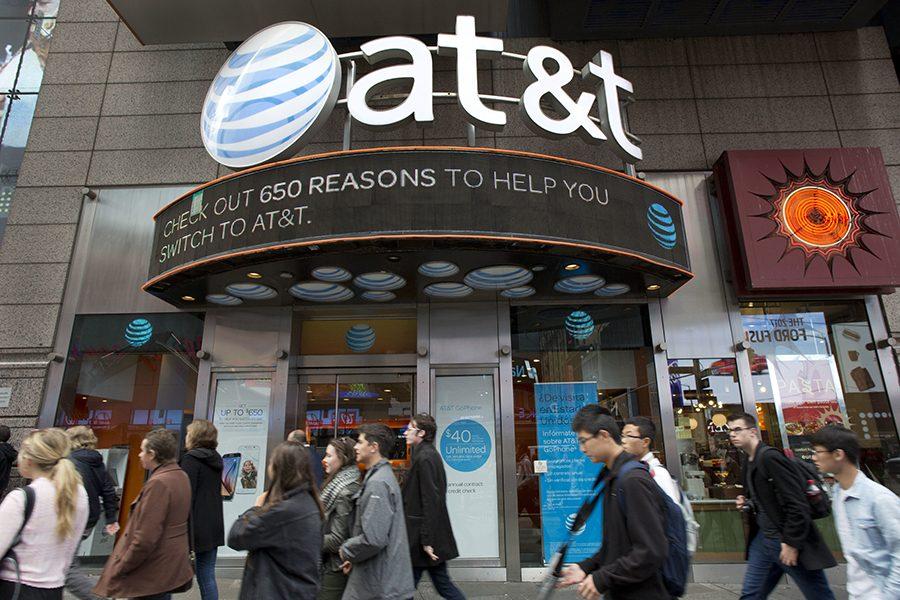AT&T and Time Warner Merger
People walk by an AT&T retail store, Monday, Oct. 24, 2016, in New York. AT&T plans to buy Time Warner for $85.4 billion. (AP Photo/Mark Lennihan)
Recently, the phone company AT&T has agreed to buy Time-Warner, Inc. for a cost of $85.4 billion. It is not definite that this will happen, though both companies seem excited for the possibility. However, people are questioning if this is going to cause current cable TV to change.
“This is what’s called a vertical merger, which means these are two companies not looking to compete with each other,” Economics teacher Gary Nelson said. “So because of this I don’t think rates will change negatively, but rather positively, because they will both be working together to reduce costs.”
This convergence of companies is an attempt to grow bigger. By following in the footsteps of companies like Lionsgate, who bought the channel Starz for $4.4 billion, and Comcast, who bought NBCUniversal for $30 billion, it is apparent that AT&T is attempting to achieve that kind of success. According to the official AT&T website Newsroom, this deal is a “combination like any other,” with “the world’s best premium content with the networks to deliver it to every screen,” in whichever way customers may want it.
Time-Warner, Inc. is a media and entertainment company, specifically in charge of a few film companies and well-known TV channels. Some of their most notable channels are HBO, Showtime, TBS, and The CW, among others. This company used to be involved with Time-Warner Cable, who specializes in just cable television, but broke away from them in 2009. Since Time-Warner, Inc. is responsible for so many known channels, viewers are questioning if this company-merge is going to affect where they watch their favorite shows.
“I watch about two hours of cable TV a week. The rest of the time I watch Netflix and Hulu, because the majority of my favorite shows are on there. I think that streaming services like these could cause less people to watch cable, and then cable TV would definitely lose money over it,” DECA student Olivia Shackleton said.
By agreeing to this deal, AT&T and Time-Warner, Inc. recognize that they could become possibly bigger than ever before. According to the Wall Street Journal, both companies hope to “become the first U.S. wireless company to compete nationwide with cable companies by providing an online video bundle” instead of the traditional, where households pay on television.” With such high expectations already, this merge seems to be in both companies’ favor.
“I think this deal will most likely work out for both of these companies, but I don’t think it will reach as high as a monopoly, because both Time-Warner and AT&T are in different businesses and will blend together, rather than one taking over the other completely.” Nelson said.
In conclusion, this company-merge, if it succeeds, will hope to achieve positive things that other companies have not attempted yet. By both companies being so positive about coming together, it shows the public that this deal might work out in the end, and that they aim to give customers what they deserve if it does.
“Statistics do show that more people are watching streaming services,” Shackleton said. “but I think this is a good deal.”











